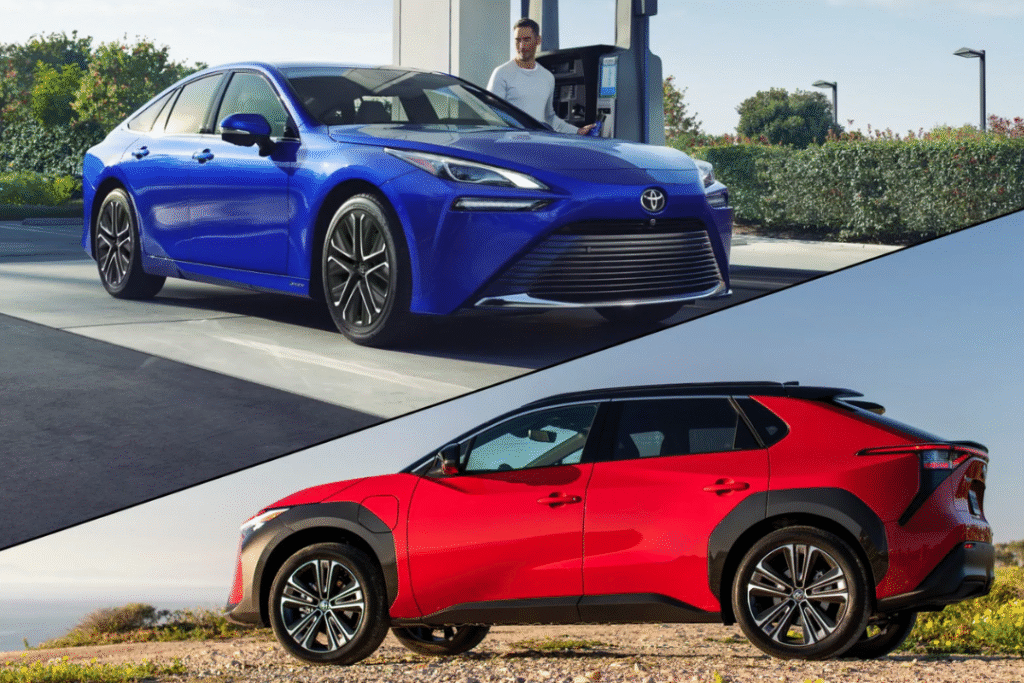The automotive industry is undergoing a massive transformation as the world shifts away from fossil fuels. For years, electric vehicles (EVs) have dominated conversations around green mobility. But now, hydrogen-powered cars are starting to enter the spotlight, offering a unique blend of performance, efficiency, and sustainability that could challenge EV supremacy.
Hydrogen vs. Electric – The New Rivalry
Electric cars have proven that zero-emission driving is possible, but they still face challenges like long charging times, battery degradation, and limited range for some models. Hydrogen cars, on the other hand, use fuel cells to generate electricity on demand, producing only water vapor as emissions. This makes them highly attractive for eco-conscious drivers. Many experts believe that why hydrogen cars could outshine electric vehicles in the future of clean transportation lies in their faster refueling, greater range, and scalability for heavy-duty transport, which sets them apart from battery-powered alternatives.

Faster Refueling, Greater Convenience
One of the biggest drawbacks of EVs is charging time. Even with fast chargers, it can take 30 minutes or more to reach 80% capacity. Hydrogen vehicles, however, can refuel in just 3–5 minutes, making them as convenient as traditional gasoline cars. For drivers who don’t want to wait around, this is a game-changer.
Extended Driving Range
Range anxiety is still a concern for many EV owners, particularly on long road trips. Hydrogen fuel cells offer longer driving distances, with some models reaching over 400 miles on a single tank. This makes hydrogen an attractive option for people who travel frequently or live in regions where charging stations are limited.
Better for Heavy-Duty Transport
While EVs are great for passenger cars, hydrogen shines in buses, trucks, and even trains. Large vehicles require massive batteries, which add weight and reduce efficiency. Hydrogen fuel cells are lighter, more powerful, and quicker to refuel, making them ideal for commercial and industrial applications.
Cleaner Energy Supply
One major concern with EVs is that electricity often comes from fossil fuel-based power plants. Hydrogen, however, can be produced using renewable energy sources like wind, solar, and hydropower. This gives hydrogen cars the potential to be even cleaner and more sustainable in the long run, especially as green hydrogen production scales up globally.
Longer Battery Lifespan
EV batteries degrade over time, reducing performance and resale value. Hydrogen cars rely on fuel cells, which generally last longer and maintain efficiency. This could lower maintenance costs and make hydrogen-powered vehicles more appealing to long-term owners.
Emerging Infrastructure
Critics often argue that hydrogen lacks refueling stations, and while that’s true today, governments and automakers are investing heavily in hydrogen infrastructure. Countries like Japan, South Korea, Germany, and even the U.S. are rapidly expanding hydrogen fueling networks, paving the way for broader adoption.
Challenges Ahead
Hydrogen cars aren’t without obstacles. Producing hydrogen is still expensive, and building fueling stations requires significant investment. However, as technology advances and green hydrogen becomes more cost-effective, these challenges are expected to shrink.
The Future Outlook
Hydrogen and electric vehicles don’t have to be direct competitors. Both play important roles in decarbonizing transportation. EVs are excellent for city driving and short commutes, while hydrogen is better suited for long-distance travel and heavy-duty vehicles. Together, they create a cleaner, greener future for mobility.
Final Thoughts
Hydrogen cars offer faster refueling, longer range, and better scalability for commercial use, making them a serious contender in the race for sustainable transportation. While EVs will continue to grow in popularity, hydrogen could ultimately carve out its own space—and perhaps even outshine electric vehicles in certain areas. For drivers looking ahead, keeping an eye on hydrogen technology might be the smartest move yet.






